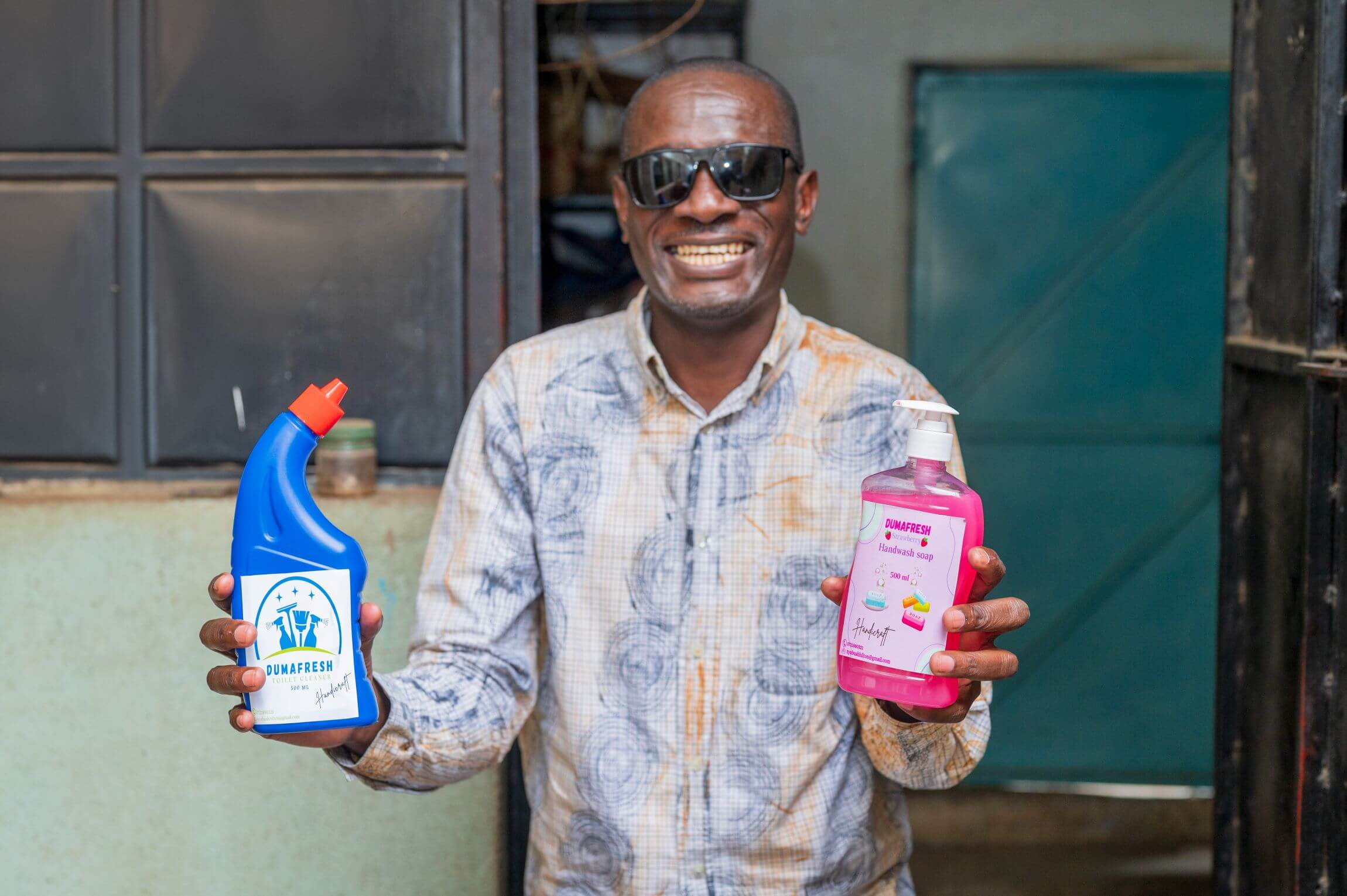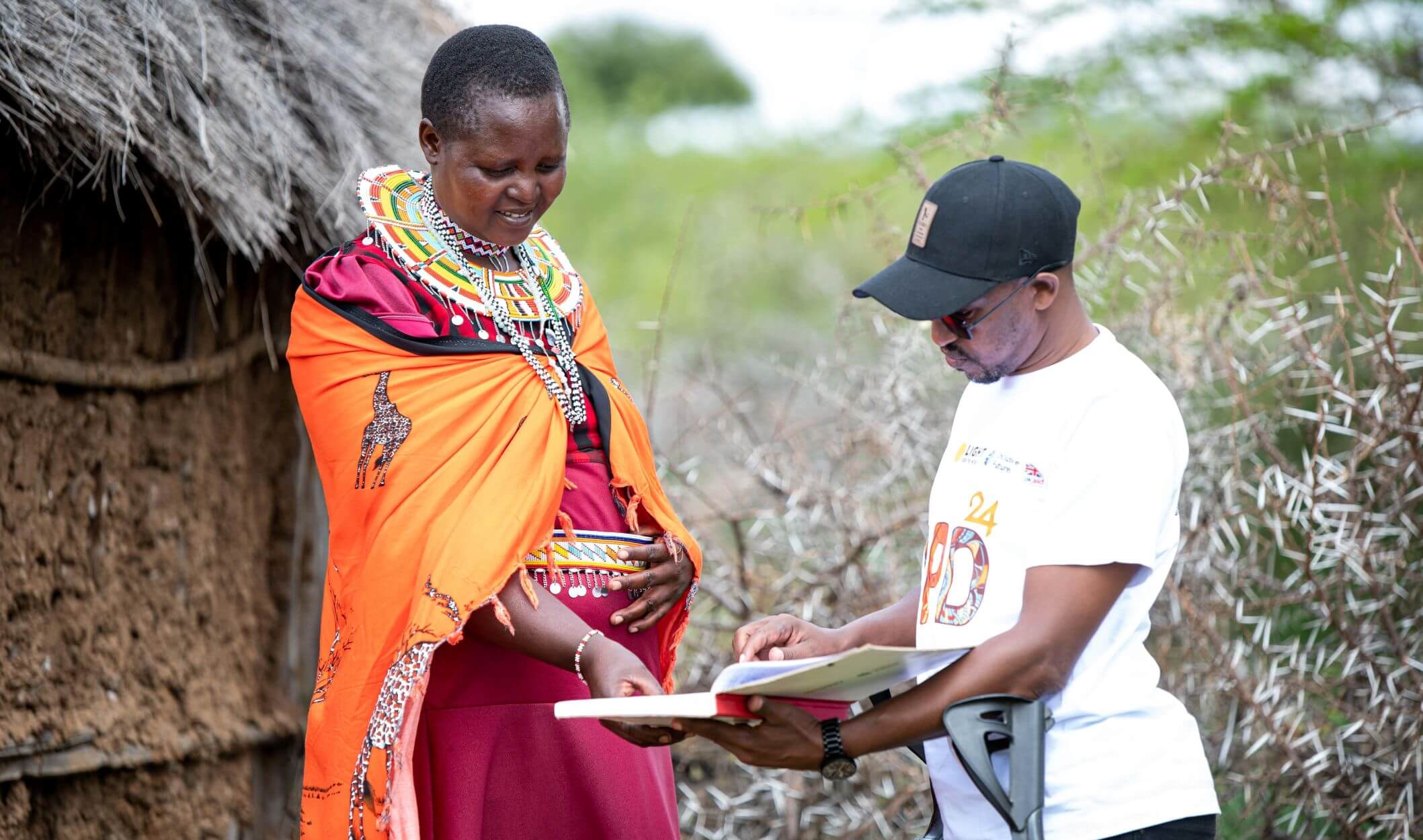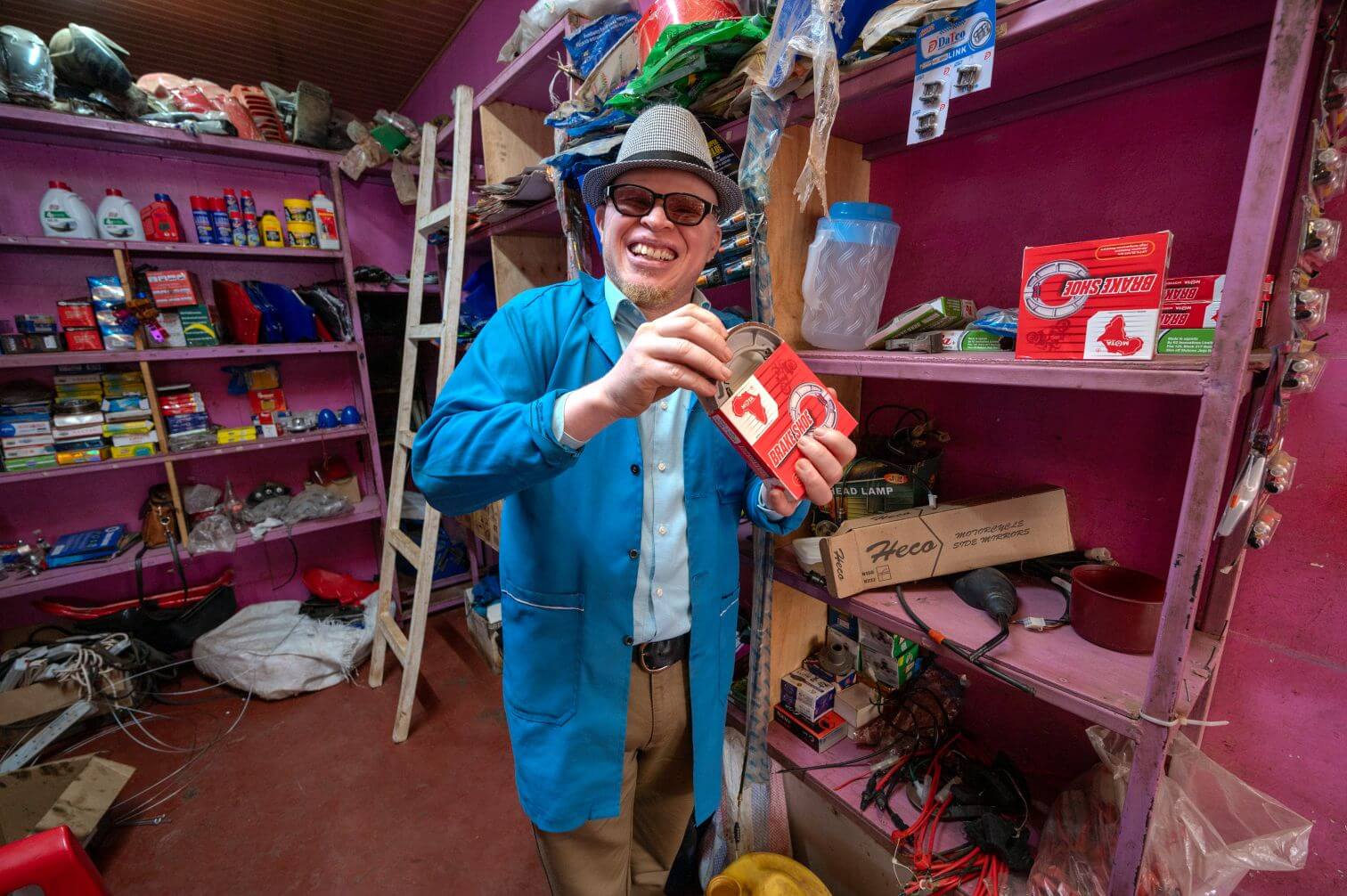- General
- Economic Empowerment
Six practical tips from Kenyan micro-entrepreneurs with disabilities on turning a business idea into reality.
Starting your own business is hard. It takes vision, bravery and sometimes even a bit of good fortune to make it as an entrepreneur.
For people with disabilities, the challenge can be even greater. Everyone has the right to dignified and fulfilling work, yet people with disabilities face significant barriers to employment, including self-employment.
Young people aged 15 to 29 with disabilities are up to five times more likely to be outside the educational system and not in employment or training, according to the International Labour Organization.
But people with disabilities are just as capable of building a business. The enterprising individuals in this article are proof micro-entrepreneurs with disabilities can thrive.
Faustina Ning’a Cikanda, Senior Expert in Economic Empowerment at Light for the World, says: “People with disabilities, especially entrepreneurs, are not chasing luck. They are responding to everyday challenges through entrepreneurship to solve real social problems in their lives and communities, just like anyone else. What they often lack is access to the right tools, networks, financing and support system.
“When we design inclusive ecosystems that remove barriers, we enable powerful, community-rooted enterprises that deliver social and economic value where it’s needed most.”
Here are some top tips from entrepreneurs with disabilities, to entrepreneurs with disabilities, on starting a business.
Tip 1 for entrepreneurs with disabilities: research your industry
Knowing why you want to start a business in a certain industry is essential.
Hilton Nyambua runs Duma Fresh Enterprises, a business selling soaps and detergents in Buruburu, Nairobi.
He started the business in 2019 with a vision to fill a gap for quality products at affordable prices.
“The top tip I can give to entrepreneurs with disabilities is to do their research first, before venturing into business,” he says.
“There are so many businesses out there, but they first have to do their research nicely because without research, you can end up starting something and it becomes a failure.”

Tip 2 for entrepreneurs with disabilities: know your numbers
Poor financial management is one of the most common reasons small businesses fail, so a basic understanding of bookkeeping is needed.
Catherine Marangu, a farmer who runs Cathy’s Grocery market stall in Meru County, received training in branding and bookkeeping from Light for the World.
“The training on record keeping was the best,” she says.
“I am able to capture the records of cash in and cash out and all the day’s sales. And at the end of the month, I’m able to evaluate all the income.”
Tip 3 for entrepreneurs with disabilities: learn new skills
Light for the World Kenya offers entrepreneurs with disabilities training in everything from business development to bookkeeping and branding, under the InBusiness programme. InBusiness, part of Inclusive Futures, is implemented in partnership with UDPK, Sightsavers, Sense International and Humanity & Inclusion UK.
Entrepreneurs with disabilities are connected to business opportunities and supported to advocate for inclusion in the public and private sectors.
Kushuke Legei is a mother of a child with a disability in Laikipia County. She was working as a school cook when, seeking flexibility to care for her child, she applied for the InBusiness programme. She now runs a business rearing goats and cows.

“They started training us on business management, then later on rearing chickens. Then they introduced us to goat rearing. When I saw how the goats were multiplying and more profitable, I developed more interest in it,” Kushuke says.
“I used to use all of the money I earned from my sales, but now I know how to keep records and manage my profits. When we joined the classes, we got a lot of courage and now we feel equal.”
Tip 4 for entrepreneurs with disabilities: take your time to grow
Starting a business can be exciting and overwhelming — with a temptation to try to do everything at once.
Anthony Maina recommends taking time to understand each step that is needed to grow a successful enterprise.
Anthony runs a garage for motorcycle spare parts in Githurai, Nairobi. He founded the business in 2017 after seeing a gap in the market for a business to repair and service a growing number of motorcycles.

“My first tip is you must familiarise yourself with the business you want to do,” Anthony says.
“You must be willing to go through the business. That means don’t rush. Learn as the process goes.”
Tip 5 for entrepreneurs with disabilities: follow your passion
To stay motivated and resilient, even in tough times, entrepreneurs should consider building a business in an area they’re passionate about.
Duncan Mwirichia, who runs Heldun Flowers and Landscapers in Kathera, learnt new skills through InBusiness before returning to his homestead, and a garden he had carefully tended for 15 years.
After rediscovering his love for gardening, he set up a landscaping business and now runs a thriving nursery selling flower and tree seedlings. His own garden has also become a popular location for wedding receptions.
“This garden reflects who I am — my love for flowers, my landscaping work, and most importantly, my passion for building connections with people,” Duncan says.

Tip 6 for entrepreneurs with disabilities: embrace opportunities
Timing can be crucial for a new business, and entrepreneurs should be ready to take chances when they come around.
One day, while Duncan was tending to flowers at his local church, the headteacher of a nearby school noticed his skills. The headteacher asked Duncan if he could plant 2,000 seedlings at the school.
Even though Duncan’s nursery was empty, he accepted the challenge and gained a valuable new client.
“Taking that leap showed me that opportunities come when you are willing to put yourself out there,” Duncan says.
Hilton, from Duma Fresh Enterprises, says entrepreneurs with disabilities can thrive when given the chance.
“What I can tell the society at large is to embrace us people with disabilities and for us to be given the platform to sell our products,” he says.
“We are also good in business and if we get that platform, we will be empowered and do good in the society.”
Some extra tips for entrepreneurs with disabilities
Faustina Ning’a Cikanda, Senior Expert in Economic Empowerment at Light for the World, shares additional tips for entrepreneurs with disabilities:
Build a business that solves a problem
“For example, a WhatsApp platform connecting local boda boda (bicycle or motorcycle taxis) riders with small businesses needing deliveries.”
Ask for feedback and test with real users, including family members
“Sometimes you do not need to wait for the perfect time, huge capital, or someone’s permission. You can start small, start now, and start with what you already know. Ask as many people as possible for feedback — it will help refine your product or service.”
Keep evolving. Your idea will change, keep learning and adjusting
“For example, an entrepreneur with a disability might start a home baking business on Instagram. When their followers start asking for lessons, they could pivot to offer YouTube tutorials.”
Your business does not need to be perfect. It just needs to work
“Someone repairing phones may not have a fancy shop. But if they’re fast, honest, affordable and do quality work, customers will care more about that than the workspace.”
Use the resources, networks and skills you already have
“Think about what you are good at, where there is a need, and see how you can combine the two.”
Help others move forward
“Support from peers can be valuable for sharing experiences. Something like a voice-note based mentorship circle for fellow entrepreneurs with disabilities can provide encouragement and advice.”




